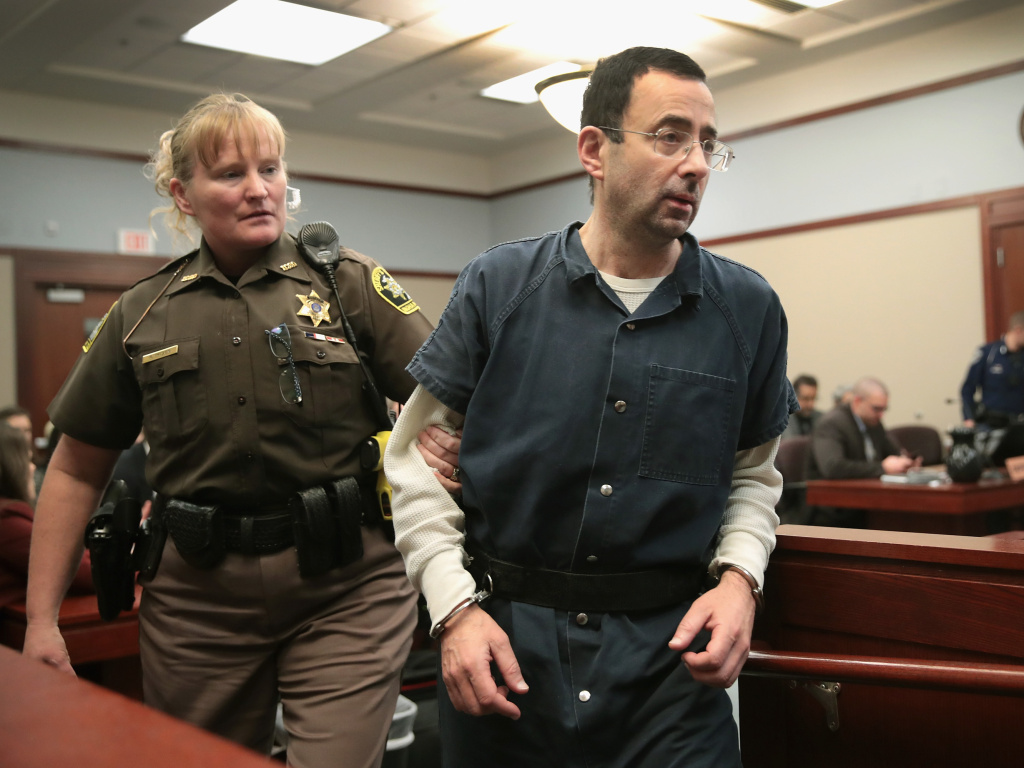By Peyton Edelson
Sexual assault, as a political topic, has burst onto the national political scene in recent years. The trail blazing #MeToo movement has gained great momentum from the 2017 sexual misconduct allegations of Harvey Weinstein and others in the years following, setting a new precedent for accountability in the American legal system. Though the movement and those like it have certainly ushered in a new age for sexual assault victims, one wherein they too can truly be heard, it seems that with every step forward, we move two steps back.
Last September, it was revealed that Michigan State University had violated the Clery Act, a piece of legislation requiring institutions to report their crime statistics. The alleged violation appears to have been used as a means to cover up the gross abuse and assault on campus perpetrated by Lawerence G. Nassar, an associate professor at the University, among others (Green 2019).
Though the Michigan State scandal made headlines this year, the former USA Olympic Gymnastics team physician has a history of sexual assault that fell on deaf ears up until a few years ago. Larry Nassar sparked the media’s attention when news of his sexual assault of several gold-medal winning Olympians first came to light in 2016. He is currently facing convictions at both the state and federal level, facing consecutive charges of 60 years in prison and 45 to 175 years in prison, respectively (Sandler 2019). Such convictions show some aspect of legal accountability. However, his criminal convictions are going to have to be reexamined as Dr. Nassar’s history of abuse appears to be much greater than once thought.
News broke out last month that Nassar and the former Dean of the University’s College of Osteopathic Medicine, William Strampel, have been connected to a University-wide scandal involving over 300 alleged victims, all of whom attended Michigan State (Green 2019). While it was Nassar assaulting scores of students on campus, Mr. Strampel, Nassar’s former supervisor, has been identified as being complicit in the abuse and now faces a federal charge.
As this long history of administration sanctioned violence came to light, the school soon found itself in the midst of severe backlash. June Youatt, the school’s provost, and Lou Anna K. Simon, the University’s former president, both resigned due to their perceived complicity. The University itself will face the consequences of its negligent administration as it grapples the serious impending financial burdens, chief of which has come straight from the United States government (Svrluga and Balingit 2019). The Department of Education has levied a groundbreaking $4.5 million fine for both the University’s failure to record these crimes and their unfulfillment of protection to these sexual abuse victims, violations of both the Clery Act and Title IX.(Green 2019).
Education Secretary Betsy DeVos stated that, “what [happened] at Michigan State was abhorrent, inexcusable, and a total and complete failure to follow the law and protect students” and for this the institution will pay (Green 2019). Michigan State, in addition to the $4.5 million fine, settled in a substantial $500 million settlement with Nassar’s victims and is subject to a five year compliance committee board requiring the university to provide victims with a wide range of compensations ranging from tuition reimbursements to counseling services to grade adjustments (Green 2019).
While this seems to be an age of increasing accountability in regards to sexual assault, the Michigan State Nassar scandal has sparked serious debate questioning whether the situation was sufficiently dealt with in terms of law.
On one side of the argument lies John Manly. Manly, a distinguished Californian attorney representing the prosecution against Nassar, stated that the fine “is essentially a punch in the gut to [his] clients” (Svrluga and Balingit 2019). In his argument, Manly cites the incident of Youtube’s fine of $170 million for failure to properly monitor children’s web activity as evidence of the Department of Education’s half-hearted response to the crimes at hand, exclaiming “sadly, it’s obvious that the political leadership of the Department of Education doesn’t give a damn about stopping this type of behavior at America’s colleges” (Green 2019). Of course, the Department of Education maintains its commitment to the just and thorough handling of such fragile situations. Education Department spokeswoman Elizabeth Hill responded to Manly’s accusation by emphasizing the swift deliverance of the record breaking fine as a prime example of their commitment to justice. No institution in this country has seen such a fine, and Hill says it is more appropriate to look at the figure in perspective to other violations of Clery Act to understand the severity of Michigan State’s punishment (Svrluga and Balingit).
Regardless of whether the record breaking fine is truly justice, it is evidence that the issue of sexual assault is becoming decreasingly taboo and increasingly public. The battle today fights for accountability and justice. Yet, will the threat of fines and legal action force college administrations to implement on campus improvements with respect to the Clery Act and Title IX? America has come a long way, but now the nation holds its breath to see how universities choose to move forward in the wake of such disgusting abuse. Let us hope, for the hundreds of victims at Michigan State, that the nation chooses to reform itself for the better and break the cycle of abuse perpetrated for so many decades across college campuses nationwide.
